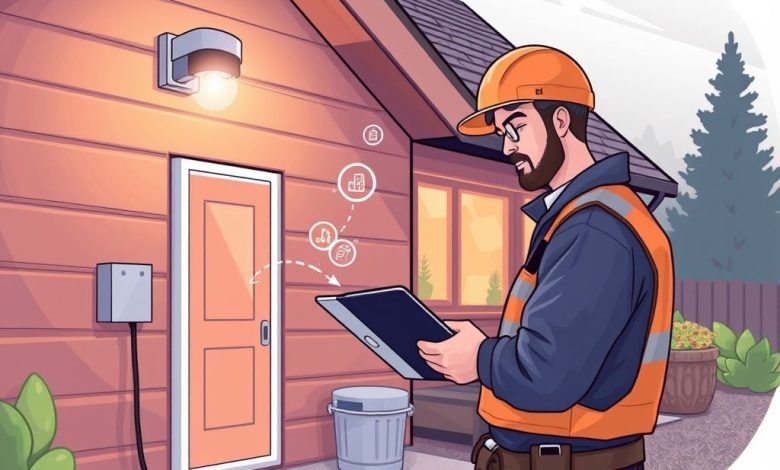Field Service Management for Smart Home Installations

Field Service Management for Smart Home Installations
Introduction
Field service management (FSM) has become increasingly crucial in the era of smart home installations. As technology advances and more devices become connected, the need for efficient and effective FSM systems grows. This article will explore the importance of FSM in smart home installations, its benefits, challenges, and best practices.
The Rise of Smart Homes
Smart homes have revolutionized the way we live and interact with our living spaces. With the integration of various technologies such as artificial intelligence, Internet of Things (IoT), and automation, smart homes offer enhanced comfort, convenience, and energy efficiency. However, this technological advancement also brings forth new challenges in terms of installation and maintenance.
Challenges in Smart Home Installations
Installing and managing smart home systems presents several challenges:
- Complexity of Integration
Smart home systems often involve multiple components from different manufacturers, making it challenging to integrate them seamlessly. - Technical Expertise Required
Field technicians need to possess advanced knowledge of various technologies and devices used in smart home installations. - Continuous Updates and Maintenance
As technology evolves rapidly, maintaining and updating smart home systems requires ongoing effort and resources. - Customer Expectations
Consumers expect quick, reliable, and efficient service, which can be difficult to meet due to the complexity of smart home systems. - Security Concerns
Connected devices pose potential security risks, requiring careful consideration in system design and implementation.
Benefits of Effective Field Service Management
Implementing an efficient FSM system offers numerous advantages:
- Improved Efficiency
Automated scheduling and real-time tracking enable faster response times and better resource allocation. - Enhanced Customer Experience
Transparent communication and timely updates keep customers informed and satisfied. - Cost Reduction
Optimized routes and reduced travel time lower operational costs. - Data-Driven Decision Making
Access to real-time data allows for better planning and resource allocation. - Scalability
FSM systems can easily adapt to growing business needs and expanding customer base.
Best Practices for Field Service Management in Smart Home Installations
To ensure successful FSM in smart home installations, consider the following best practices:
- Invest in Comprehensive FSM Software
Choose a robust FSM platform that integrates with existing systems and provides real-time tracking capabilities. - Implement AI-Powered Scheduling
Utilize machine learning algorithms to optimize route planning and technician allocation. - Provide Extensive Training
Ensure technicians receive regular training on new technologies and devices. - Establish Clear Communication Channels
Implement a centralized communication system for seamless interaction between customers, technicians, and dispatchers. - Focus on Customer Education
Offer comprehensive support and guidance to help customers understand and utilize their smart home systems effectively. - Prioritize Data Security
Implement strict protocols to protect sensitive customer information and prevent unauthorized access. - Regular System Updates
Maintain a schedule for regular software updates and device firmware upgrades. - Leverage IoT Connectivity
Optimize FSM processes by leveraging real-time data from connected devices. - Implement Quality Control Measures
Establish rigorous quality control procedures to ensure high standards of workmanship. - Foster a Culture of Innovation
Encourage continuous improvement and innovation within the team to stay ahead of technological advancements.
Conclusion
Field service management plays a critical role in ensuring the success of smart home installations. By implementing efficient FSM strategies, businesses can overcome the challenges associated with complex smart home systems while providing exceptional customer experiences. As technology continues to evolve, the importance of effective FSM will only grow, necessitating ongoing investment in innovative solutions and best practices.
By adopting the principles outlined in this article, field service managers can position themselves at the forefront of the smart home revolution, delivering superior services that meet the demands of an increasingly tech-savvy consumer market.




